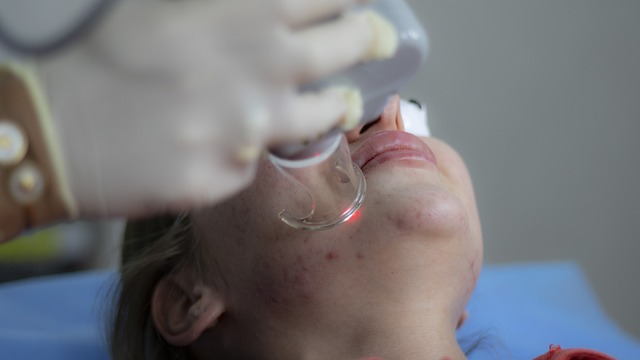Acne is a common skin condition that affects people of all ages, from teenagers to adults. It is caused by clogged pores, excess oil production, and bacteria on the skin. Acne can be frustrating and embarrassing, but there are several ways to treat it. In this article, we will discuss 10 ways to treat acne.
Over-the-counter medications
One of the most common ways to treat acne is by using over-the-counter medications. These medications usually contain benzoyl peroxide, salicylic acid, or alpha-hydroxy acids (AHAs). Benzoyl peroxide works by killing the bacteria that cause acne, while salicylic acid and AHAs exfoliate the skin and unclog pores. It is important to follow the instructions carefully and use the medication as directed.
Prescription medications
For more severe cases of acne, prescription medications may be necessary. These include topical or oral antibiotics, retinoids, and hormonal therapies. Topical antibiotics work by killing the bacteria on the skin, while retinoids help unclog pores and reduce inflammation. Hormonal therapies, such as birth control pills, can be effective for women with hormonal acne.
Professional treatments
Professional treatments, such as chemical peels, microdermabrasion, and laser therapy, can also be effective for treating acne. Chemical peels and microdermabrasion remove dead skin cells and unclog pores, while laser therapy targets the bacteria that cause acne. These treatments are usually done by a dermatologist and may require several sessions.
Diet changes
Some studies have suggested that certain foods can trigger acne. These include dairy products, high-glycemic-index foods, and foods high in saturated and trans fats. Reducing or eliminating these foods from your diet may help improve your acne.
Stress management
Stress can also contribute to acne by increasing the production of hormones that stimulate oil production. Practicing stress management techniques, such as meditation, yoga, or deep breathing, may help reduce stress levels and improve acne.
Proper skincare
Proper skincare is important for preventing and treating acne. This includes cleansing your skin twice a day, using oil-free or non-comedogenic moisturizers, and avoiding harsh scrubs and exfoliants that can irritate the skin. It is also important to avoid touching your face, as this can transfer bacteria from your hands to your skin.
Avoiding certain medications
Some medications can worsen acne, such as corticosteroids, lithium, and anticonvulsants. If you are taking any of these medications and are experiencing acne, talk to your doctor about alternative treatments.
Natural remedies
Several natural remedies have been suggested for treating acne, such as tea tree oil, aloe vera, and green tea. While these remedies may have some benefits, they are not a substitute for medical treatment and should be used with caution.
Sun protection
Exposure to sunlight can worsen acne and cause skin damage. It is important to protect your skin from the sun by wearing a broad-spectrum sunscreen with an SPF of at least 30 and avoiding prolonged exposure to the sun.
Lifestyle changes
Finally, making lifestyle changes can also help improve acne. This includes getting regular exercise, quitting smoking, and getting enough sleep. These changes can help reduce stress levels and improve overall health, which can in turn improve acne.
Conclusion
Acne can be frustrating and embarrassing, but there are several ways to treat it. Over-the-counter and prescription medications, professional treatments, diet changes, stress management, proper skincare, avoiding certain medications, natural remedies, sun protection, and lifestyle changes are all effective ways to treat acne. If you are experiencing acne, talk to your doctor or dermatologist.
